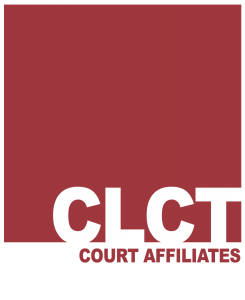Upcoming Online Workshops
TBD
By registering for this workshop, you consent to the recording of audio and video from this workshop and to publication of that recording on the Center for Legal & Court Technology’s password-protected Court Affiliates website.
Recordings of Past Online Workshops
Deepfakes & Other Forms of Digital Manipulation
Thursday, February 21, 2023 | 4:00 – 5:00 pm Eastern Time
With recent advances in AI, digital information, including audio and video data, is more vulnerable than ever to alternation or even total fabrication. Novel threats from AI technologies allow threat actors to alter existing data or synthesize new information without leaving any trace of manipulation. One main example of AI-based information manipulation is deepfakes, which refer to realistic but fake AI-generated media. CLCT’s Cybersecurity Researcher and in-house deepfakes expert, Daniel Shin, will present an interactive workshop focusing on deepfakes and their potential impact on digital evidence. We welcome all Court Affiliates members, regardless of their technical backgrounds, to join in this unique presentation and follow-up discussion.
Livestreaming of Courtroom Proceedings
Thursday, April 14, 2022 | 4:00 – 5:00 pm Eastern Time | 1:00 – 2:00 pm Pacific Time
Prior to the COVID-19 Pandemic, some courts, especially appellate courts, streamed their proceedings to the public via audio or audio-video primarily for the purposes of transparency and education. Florida’s Ninth Judicial Circuit Court was a pioneer in the area. With the advent of the Pandemic and the move to remote proceedings, many courts adopted streaming as a means of providing public access that would otherwise have been lost with closed or restricted courtrooms. Please join us for our forthcoming Court Affiliates Interactive Workshop as we discuss the future of streaming, both as a matter of policy and from a technological perspective.
Ransomware Protection
Thursday, April 21, 2022 | 4:00 – 5:00 pm Eastern Time | 1:00 – 2:00 pm Pacific Time
Ransomware is a prevalent malware that threatens IT systems, including those supporting court administrations. Unlike other forms of malware, ransomware allows threat actors to profit from their malicious computer activities, which introduces a unique set of issues. In the upcoming Court Affiliates workshop, CLCT Cybersecurity Researcher and CCI* Research Scientist Daniel Shin will present an overview of ransomware. The workshop covers (1) best practices to mitigate malware threats in the IT environment, including the implementation of Zero Trust Architecture, (2) common indicators of a ransomware attack, (3) potential responses to a ransomware attack, and (4) how threat actors use cryptocurrency to profit from a ransomware attack. We encourage technologists, administrators, and judges to attend this informative workshop.
*Commonwealth Cyber Initiative is a Virginia state-funded program that engages institutions of higher education, industry, government, and non-governmental and economic development organization to build an ecosystem of cyber-related research, education, and engagement to position the Commonwealth as a world leader in cybersecurity.
E-Signature Efficiencies: Using Adobe Sign with Microsoft Teams for a Better Judicial Experience
Originally held, Thursday, February 10, 2022 An inability to hold in-person proceedings during the COVID-19 pandemic caused delays and other inefficiencies in the workflow of completing tasks and, in some cases, a delay in important judicial processes. The U.S. District Court for the Northern District of New York created a solution to this problem using Microsoft Teams and Adobe Sign to establish a procedure for obtaining electronic signatures for court documents. The end product, jail kiosks installed at local facilities, allows for better access to defendants and documents can be executed in virtual hearings and meetings. Please join us for a presentation and discussion with Nicole Eallonardo and Ryan Molloy from the U.S. District Court for the Northern District of New York on this topic.
Court Use of Social Media
Originally held, Thursday, December 9, 2021 Courts have long reached out to the community both to communicate administrative matters and to explain the role of courts. Social media presents new opportunities and perhaps new risks. Join us for our next Court Affiliates Interactive Workshop to discuss this important subject. Please note that this is a discussion facilitated by Frederic Lederer, the Director of the Center for Legal & Court Technology and Chancellor Professor of Law at William and Mary, rather than a presentation.
Establishment of and Use of Courtroom Wi-Fi Networks
Originally held, Wednesday, October 6, 2021 For years, a major obstacle to technology-augmented courtrooms has been the difficulty and expense of installing cabling. Today, secure local area Wi-Fi networks can be used in courtrooms, permitting much of the functionality inherent in cabled facilities. This interactive workshop includes representatives of Barco, Extron, and WolfVision, each of whom will briefly explain their company’s Wi-Fi solutions and answer your questions. Participants will then discuss the utility of using Wi-Fi instead of or in addition to more traditional cabling.
Jury Evidence Recording System (JERS) Demonstration
Originally held, Thursday, March 25, 2021 The Jury Evidence Recording System (JERS) allows jurors to easily review and navigate electronic evidence presented at trial: photographs, documents, and recordings, with the ability to pause, zoom, search, and compare exhibits. With JERS, court staff can import exhibits from storage media or capture them when presented using a digital recorder. Join our online workshop facilitators, the Honorable Robert J. Conrad, Jr., Kent Creasy (Director of Information Technology), T.J. Haycox (Career Law Clerk), and Derek Worthington (Application Programmer) from the United States District Court of the Western District of North Carolina, to show you how jurors electronically review evidence and instructions in the deliberation room and how courts access exhibits during trial and on appeal. JERS was developed in 2008 using suggestions from courts and court staff nationwide. It is currently used in more than half of the federal judicial districts.
Virtual Criminal Bench Trial: Demonstration and Discussion
State v. Forcette
Originally held on January 26, 2021 In light of the COVID-19 Pandemic, many courts have turned to virtual or remote trials and court appearances. The Center for Legal & Court Technology (CLCT), formerly the Courtroom 21 Project, will virtually try State v. Forcette, a (simulated) criminal road rage assault bench trial. The Honorable Herbert B. Dixon, Jr. (Ret.), Superior Court of the District of Columbia, will preside. This program is intended for discussion of the utility and difficulties inherent in virtual trials, and it should be especially useful for those judges and court staff who have not yet been involved in a virtual trial. We will pause the trial twice for discussion and questions.
Establishing Protocols, Minimum Requirements, and Best Practices for Virtual Appearances, Hearings, and Trials
Originally held on November 19, 2020 Courts have found remote appearances to be challenging. Not only are there bandwidth and technical issues to deal with, but counsel, litigants, and witnesses may behave in surprising ways, ways that are at variance with normal court protocol and expectations. Join W&M Chancellor Professor of Law and Director of CLCT, Fred Lederer, and members of our other Court Affiliates for an interactive discussion of how your court has developed technical standards and best practices for virtual appearances, hearings, and trials. What steps have been taken in your court? Together, we can discuss whether we can develop a protocol for courts to apply to their day-to-day remote operations.
Navigating the Fast Lane of COVID-19 Court Room Technology
Originally held on October 8, 2020. Courtroom technology has evolved rapidly since March. What will court life be like when we finally emerge from the COVID-19 pandemic? Join W&M Chancellor Professor of Law and Director of CLCT, Fred Lederer, and members of our other Court Affiliates for an interactive discussion of the challenges you faced during the pandemic, how your day to day court life has evolved and adapted, and what you think should be retained after the pandemic. Our emphasis will be on what YOU have learned that could benefit other courts.
Coping With the Pandemic: Possible Use of Remote Hearings
Originally held on March 26, 2020. Now that courts and other businesses are faced with altering their operations due to COVID-19, how can your court become equipped to use video communications for motion practices, hearings, and trials? Join W&M Chancellor Professor of Law and Director of CLCT, Fred Lederer, and Paula Hannaford-Agor, Director of the Center for Jury Studies at the National Center for State Courts, for an interactive discussion of the possible use of video communications in the courtroom.
Bridging the Judge-Administrator-Technologist Communication Gap
Originally held on February 27, 2020. At this online workshop, our presenters discussed the difficulties in solving the communication difficulties that often arise between judges, administrators, and technologists when trying to solve courtroom technology problems. Presenters included David Bartee, IT Director for Fairfax County Circuit Court in Virginia, Jon A. Gegenheimer, Clerk of Court for the Jefferson Parish 24th District Court in Louisiana, and The Honorable Michael Lindner, Judge for Fairfax County Circuit Court in Virginia.
Online Dispute Resolution: Present and Future
Originally held on Thursday, November 14, 2019. At this online workshop, our presenters discussed the rise of online dispute resolution (ODR) as a technology-enabled evolution of alternate dispute resolution and the flexibility and opportunities the growing practice offers legal professionals. Justice Constandinos “Deno” Himonas of the Utah Supreme Court addressed Utah’s experimental small claims procedures that apply ODR principles, while Professor Nicholas Vermeys of the University of Montreal and William & Mary Law School discussed artificial intelligence ODR tools and Canada’s leading prototype of the technology.
Assisting Self-Represented Litigants via Online Sources and Video Materials
Originally held on Thursday, October 3, 2019.
At this online workshop, our presenters offered valuable information that every court system can use to improve the resources it offers to self-represented litigants. Danielle Hirsch, Principal Court Management Consultant for the National Center for State Courts, contextualized the need for easily accessible materials for pro se litigants and presented her findings on the best ways to make those materials available and useful to the public. She also described some of the pitfalls that courts routinely encounter with respect to making these materials more accessible, as well as how to avoid them. Additionally, John A. Wilson, Multimedia Communications Coordinator for the Superior Court of California, County of Ventura, provided a robust, illustrative list of resources that his court system offers to self-represented litigants. He explained Ventura County’s public outreach successes with animations and other videos and interactive videoconferencing via YouTube and Zoom. John also discussed how the court, through metrics, has taken advantage of feedback that it has received from its users.


